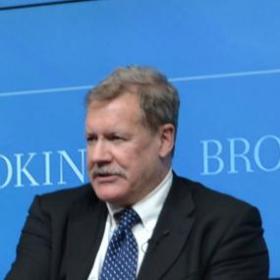
Red Ren, Huawei, Secret Code
Greg Austin wrote this piece for his weekly column in New Europe
We have a problem! One of the world’s leading telecoms providers, Huawei of China, sells critical equipment to America’s closest allies in Europe and Asia but many in the United States want to block its expansion there on national security grounds.
The warnings have been raised on several occasions, but most recently by eight U.S. senators in a letter to President Obama, citing Huawei’s past trade with Saddam Hussein’s Iraq, its current trade with Iran, and the risk that the Chinese government might plant secret code in some of the equipment that would undermine U.S. national security.
According to the letter: “British, French, Australian, and Indian intelligence agencies have either investigated Huawei or expressed concern that its products could facilitate remote hacking and thereby compromise the integrity of the telecommunications networks in their countries.”
This is of course technically possible. There are precedents where it has been done with equipment from other providers. Two policy problems emerge here: one to laugh about, and one to get very serious about.
First, some fun. If key U.S. allies in Europe, including Britain, already heavily rely on Huawei products and services for basic broadband services, then the clever Chinese armed forces may already be able to neutralize key NATO members. Under one of the biggest telecom procurement contracts ever, signed in 2005, Huawei has been a critical supplier for British Telecom’s high speed broadband. BT has called Huawei a “world class supplier”. Ooops! There goes Britain.
Is the reverse also true? Have the clever American spies planted secret codes in the telecoms and IT equipment sold by leading US suppliers around the world, including to China? We should note that some of China’s modern warships depend on supply of foreign technology, including in some cases foreign communications equipment.
The founder of Huawei, Ren Zhengfei, used to be a member of the Chinese armed forces. This is one source of suspicion of Huawei. Ironically, according to one source, he was denied Communist Party membership because of the Kuomintang political background of his parents. And he was pushed out of the army in the first big wave of demobilizations under Deng Xiaoping in 1982.
Seriously though, and this second point is very important, overcoming the mis-trust of Huawei in the United States is important. To do this, China needs to take certain steps alone and China and the United States need to work together on yet other measures. For its part, China must do something about the unremitting and massive attacks from its territory on foreign networks and confidential data. Of course, its choices are limited both technically and politically. But according to a well-informed source, the Chinese government does have in place the potential for physical control of all internet gateways for traffic passing into and out of China. It needs to work on strategies for reversing the growing mis-trust of it on account of its global electronic invasion.
Together, the governments of China and the United States need to work with their leading corporations to set up a system for guaranteeing supply chain integrity. This has complex technical and political aspects, and it probably can never be 100 per cent guaranteed. But comprehensive new measures need to be put in place. Huawei has been honoured as Vodafone’s Supplier of the Year and has been given the Financial Times' Arcelor Mittal Boldness in Business award, among others. But China needs to do more. The anxious Americans could also relax a little. Security interdependence in ICT is here to stay. American politics needs to come to terms with that and work out with China the rules that protect their separate and their mutual interests.

